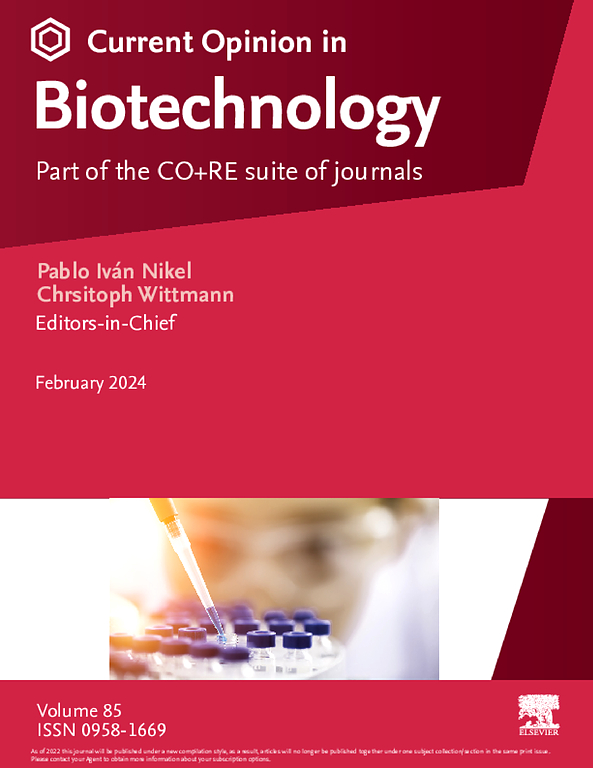Recent advances in microbial synthesis of polyphenols
IF 7.1
2区 工程技术
Q1 BIOCHEMICAL RESEARCH METHODS
引用次数: 0
Abstract
Polyphenols are plant-derived secondary metabolites known for their antioxidants, anti-inflammatory, and antimicrobial properties, with flavonoids being the most structurally diverse and medically relevant subclass. Traditional plant extraction is limited by low abundance and difficulty in separating from analogs. Microbial synthesis has emerged as an alternative method to complement plant extraction. This review summarizes recent advancements in microbe-sourced polyphenols, especially flavonoids and related derivatives. Key strategies, including modular design, CRISPR-based optimization, co-culture, and dynamic regulatory systems, have been employed to enhance microbial factory production efficiency. Emerging artificial intelligence–driven computational modeling and pathway optimization hold significant promise for enhancing polyphenol biosynthesis. Taken together, microbial synthesis offers a scalable and sustainable alternative to plant extraction. The cost-effective production of polyphenols will expand their applications in pharmaceuticals, nutraceuticals, and food industry.
微生物合成多酚的研究进展
多酚是植物衍生的次生代谢物,以其抗氧化、抗炎和抗菌特性而闻名,其中黄酮类化合物是其结构最多样化且与医学相关的亚类。传统的植物提取受到低丰度和难以从类似物中分离的限制。微生物合成已成为补充植物提取的一种替代方法。本文综述了微生物来源的多酚类化合物,特别是类黄酮及其衍生物的研究进展。采用模块化设计、基于crispr的优化、共培养和动态调控系统等关键策略来提高微生物工厂的生产效率。新兴的人工智能驱动的计算建模和途径优化对增强多酚生物合成具有重要的前景。综上所述,微生物合成为植物提取提供了一种可扩展和可持续的替代方法。多酚的低成本生产将扩大其在制药、营养食品和食品工业中的应用。
本文章由计算机程序翻译,如有差异,请以英文原文为准。
求助全文
约1分钟内获得全文
求助全文
来源期刊

Current opinion in biotechnology
工程技术-生化研究方法
CiteScore
16.20
自引率
2.60%
发文量
226
审稿时长
4-8 weeks
期刊介绍:
Current Opinion in Biotechnology (COBIOT) is renowned for publishing authoritative, comprehensive, and systematic reviews. By offering clear and readable syntheses of current advances in biotechnology, COBIOT assists specialists in staying updated on the latest developments in the field. Expert authors annotate the most noteworthy papers from the vast array of information available today, providing readers with valuable insights and saving them time.
As part of the Current Opinion and Research (CO+RE) suite of journals, COBIOT is accompanied by the open-access primary research journal, Current Research in Biotechnology (CRBIOT). Leveraging the editorial excellence, high impact, and global reach of the Current Opinion legacy, CO+RE journals ensure they are widely read resources integral to scientists' workflows.
COBIOT is organized into themed sections, each reviewed once a year. These themes cover various areas of biotechnology, including analytical biotechnology, plant biotechnology, food biotechnology, energy biotechnology, environmental biotechnology, systems biology, nanobiotechnology, tissue, cell, and pathway engineering, chemical biotechnology, and pharmaceutical biotechnology.
 求助内容:
求助内容: 应助结果提醒方式:
应助结果提醒方式:


